 Jane Austen and zombies. Abraham Lincoln and vampires. Charlotte Bronte and vampires and zombies and werewolves. Even Tolstoy’s Anna Karenina is now an android.
Jane Austen and zombies. Abraham Lincoln and vampires. Charlotte Bronte and vampires and zombies and werewolves. Even Tolstoy’s Anna Karenina is now an android.
What is going on in the rarefied climes of literature? Who brought these creatures of the genre underbelly of pop culture to sup at the same table as the revered icons of high literature? And now that these strangest of dining companions are inextricably linked together, where will it all lead and should we welcome this creative Frankenstein or gather an angry well-read crowd carrying pitchforks and burning torches and run them out of town?
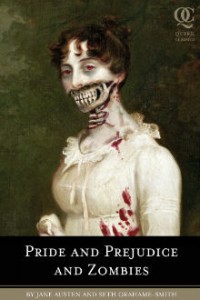
Is society eating itself alive?
That depends on whether you see “literary mash-ups”, as these postmodern pairings are imaginatively termed, as a threat or not. Given that they are a synthesis of a classic text such as Pride and Prejudice with a modern pop culture phenomenon like zombies, or Sense and Sensibility with sea monsters, purists would argue that there is everything to be afraid of. They are concerned that many much loved works of literature will be despoiled in some way by populist influences of suspect worth.
Further they allege that the existence of these post modern enfants terrible smack of a cultural malaise, a sense that society has begun to culturally cannibilise itself.
Jaron Lanier, an American computer scientist, and author, voiced this disquiet in his 2010 book, You Are Not a Gadget:
“Pop culture has entered into a nostalgic malaise. Online culture is dominated by trivial mash-ups of the culture that existed before the advent of mash-ups.”
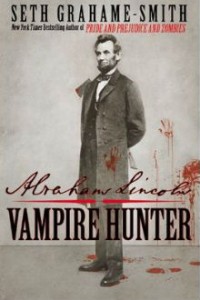
A levelling of the literary field
But others seen the rise and rise of literary mash-ups as simply a sign that the way we consume literature, and comment on it, is changing. Thanks to widespread use of the internet, what was once the province of learned men high up in ivory towers of learning is now accessible by the general public.
They are also at pains to point out that literary mash-ups are not simply a wanton superficial amalgam of a hallowed text and some quirky element of modern pop culture. In an essay on the site Escape Into Life entitled “Dawn of the literary mash-up”, John Ladd, a blogger who writes about the mixing of technology and poetry at his blog Paradise Tossed asserted that:
“A literary mash-up in a hybrid: half creative fiction in its own right, and half criticism or commentary on the original work… Instead of proving [a thesis] by traditional critical means, a mash-up shows us what a text is about by altering the text itself.”
So where one camp sees a trivialisation of culture, a dumbing down of the literature we consume, others see a democratisation of expression and thought. Wherever you stand, the existence of literary mash-ups, makes perfect sense in a postmodern culture where synthesis of the old and new is seen as nothing unusual.
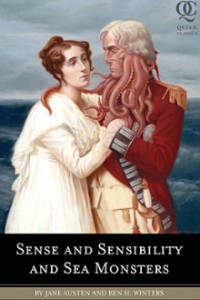
Everything old is new again
Literary mash-ups are, in fact, the natural descendants of a trend that had its origins in the predilection of hip-hop music to sample music from decades past and seamlessly weave them into wholly new songs. Others point further back to ancient times to ancient times where Greek stage dramas were borne out of a combination of religious ritual and popular entertainment. Whatever the source of this new sensibility, Joe Fassler writing in The Atlantic argues that “appropriation has become an important artistic currency” in our “vast and various” modern entertainment landscape.
So while the old guard may have recoiled in horror, the release of the first of these literary mash-ups in 2009, Pride and Prejudice and Zombies, which is credited to Jane Austen and Seth Grahame-Smith (from an idea by Quirk Books editor, Jason Rebulak), made perfect sense. It was entirely in keeping with the postmodern ethos that ideas are no longer hostage to a particular place and time. They can be, so the thinking goes, moved around like chess pieces on a board, to be consumed in whatever form you desire.
But it’s not just where these mash-ups have arisen from that matters. It is also what their emergence represents. Hand in hand with the democratisation of ideas, has been the partial withering on the vine of the idea that some books are literary while some are not.
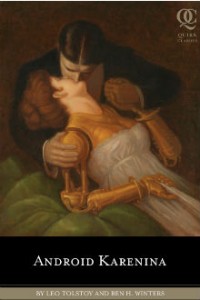
The marriage of literature and genre fiction
With that has gone the idea, comparatively recently too, that “serious” writers only ever write mainstream literature, leaving the creation of genre fiction such as thrillers, fantasy and science fiction to authors described by Kim Wright, author of Love in Mid Air, who has recently tipped her toe into the genre pool with an untiltes mystery novel she describes as Victorian-era CSI, as “the workhorses of publishing”. She goes on to assert that:
“The good ship Literary Fiction has run aground and the survivors are frantically paddling towards the islands of genre.”
While even she concedes this is perhaps a little melodramatic, the feeling is that literary mash-ups are simply a sign that genre writing is no longer a shameful secret for many authors. It is argued that genre fiction has for many years subsidised the publication of more serious mainstream titles, but that the genre authors are now receiving long overdue recognition as the true engines of growth in the publishing world. This is encouraging other writers to leave their literary enclaves, and write titles that many may not have expected them to write, without a hint of embarrassment.
One example of this trend is Colson Whitehead, author of many critically-acclaimed books such as Sag Harbor and Apex Hides the Hurt, who recently released a book about the aftermath of a zombie apocalypse, Zone One. Rather than feeling the need to apologise for writing about such populist subject matter, Whithead instead celebrates the fact that he is now able to combine his childhood love of horror comics and novels with his love of good, nuanced writing. He admits he was influenced by the publication of Pride, Prejudice and Zombies, but he had “assumed I was not going to be a part of some large cultural conversation.”
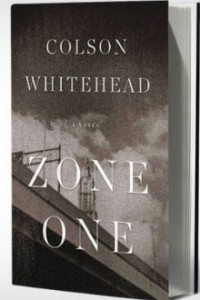
He admits to being pleasantly surprised that what appeared for many at first to be a zany mishmash of the high and lowbrow has cemented itself as a genuine shift towards a true merging of literary and genre. As far as he is concerned, though, people will read you regardless of the subject matter if the writing is good. “I think if you do your job, then people will come to it – whether it’s about elevator inspectors, or John Henry, or zombies. Early on in my career, I figured out that I just have to write the book I have to write at that moment.”
It’s a thought echoed by Celeste Ng in her piece “Vampires and zombies and literature, oh my…” on the site, Fiction Writers Review, who argues that “the rise of vampire/zombie/[insert monster here] writing is a pretty clear sign that it’s not the subject that matters; it’s the quality of the writing… In a way it’s a democratisation of literary subjects – fantastical creatures and topics and worlds are no longer off-limits to “serious” writers.
So while you could dismiss literary mash-ups as a trivial lark by some sections of the publishing industry, they are in fact not just a product of the times but harbingers of a seismic shift in the way we look at and consume literature. Whoever knew a zombie could be that clever?